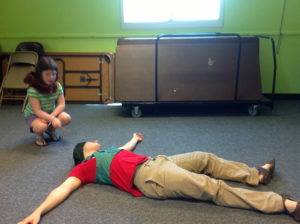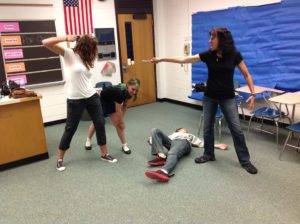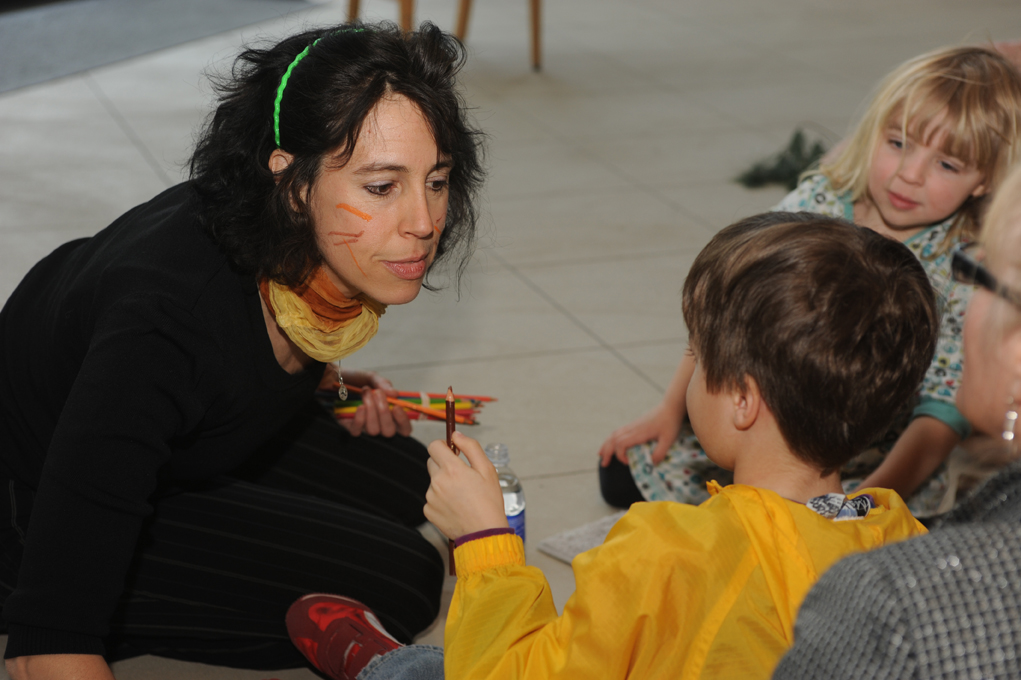Well, my intrepid readers, it has been crazy here in Holly’s world, but we are now back with our regularly scheduled program!
It’s summertime, and many of you are involved in camps, programs, community projects that have a performative aspect, although your own performance background may be somewhat limited. This blog arises out of some questions such folks (not much theatre/performance background) have been asking me.
Know that it will be difficult, like having science camp without a strong background in science. But they say fortune favors the brave! For starters, always remember to include creative exercises that have wildness inside of structure, that let them expand out, then draw in (collect them/contract the group and the focus)…like
 breathing. Performance ‘games’ like “Lemonade” and “Lean and Leave” are perfect for this, and there are many many resources with terrific suggestions.
breathing. Performance ‘games’ like “Lemonade” and “Lean and Leave” are perfect for this, and there are many many resources with terrific suggestions.
But what about working on the script? Typically, after the honeymoon period, you may find yourself worrying about lines and be tempted to drill the kids.
Here are some helpful ideas to help the kids learn their lines without that!
1) Keep it fun, fast, and ‘furious’. Find goals that are NOT “learn your lines” but rather focus on the flow of IDEAS. Remember — the lines themselves are not important — the kids just need to know what comes next. Fun ways to do this are making frozen pix, like a guessing game, doing the ideas backwards, thinking of a game, like spud or blind man’s bluff, or freeze tag or something, and add “their line or close enough” is how they are ‘safe’ or get to the next part of the game.
2) Occasionally, like with a joke, the lines ARE important. Have a joke session! Before lunch, everyone has to think of their favorite jokes in real life and tell one after lunch. Then, do a TREASURE HUNT for jokes in the script. Have them find places where a few words could be changed to ADD A JOKE. This will help it be funny AND they will be learning the whole script without realizing it.
 3) Focus on having a fun team do the background for each scene. They could be the THINGS, with 2 people per thing. It will help the speaking actors know their lines, believe or not.
3) Focus on having a fun team do the background for each scene. They could be the THINGS, with 2 people per thing. It will help the speaking actors know their lines, believe or not.
4) Tell them, like a movie, that you need “background extras.” Who might be in the background? What are they doing? Are they paying attention? How could they help out with a line for a stuck actor… without it looking like the kid made a mistake?
5) Find the kid (there are always two or three) who know the whole play. Find a way for them to help out with a question when another kid is stuck. For example, if my line is “I’d like a pickle” and I forget, you might say to me, “Don’t you want something sour to go with that sandwich?”
Best of luck, and feel free to contact me for more help!



